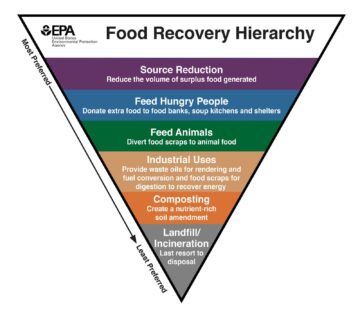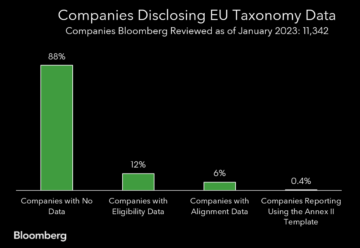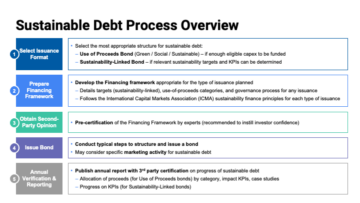
High street fashion giant and Zara owner Inditex has announced a fresh pledge to reduce its emissions by more than 50 percent by 2030 and reach net zero by 2040.
The Spanish company unveiled the new sustainability targets at its annual general meeting this week, confirming plans to overhaul its operations and supply chains in pursuit of the new goals.
Inditex — which also owns Bershka and Pull & Bear — said the new strategy would see it exclusively use “low-impact” fibers or textiles with a smaller environmental footprint across its entire business by 2030.
It estimates that by the end of the decade around 40 percent of fibers used across its brands will come from conventional recycling processes, 25 percent will be next generation fibers, and a further 25 percent will come from organic or regenerative farming practices.
The fashion group said it also plans to expand its fashion circulatory services, such as its Zara pre-owned initiative, and undertake work on restoration and regeneration projects to improve biodiversity across at least 12 million acres in different parts of the globe.
Óscar García Maceiras, chief executive at the company, said the sustainability targets were “extremely ambitious, albeit just another step in the work the company has been doing for many years now.”
In related news, Visa announced H&M Group’s COS brand and the United Repair Centre are among the first experimental partners to take part in a major research project seeking to better understand how businesses can help consumers actively engage in the transition to a more circular economy.
Visa revealed the brands are participants in its Recommerce Behavioral Insights Lab — a new initiative which will run real-world experiments to see how consumer behaviors can be shifted in favor of more sustainable practices.
According to research by Kantar, 92 percent of consumers claim they want to live a more sustainable life, but only 16 percent are taking active steps to change their behaviours.
Visa said by partnering with leading brands it hopes to explore how to bridge this “intention/inaction” gap and drive the development of more circular behaviours and business models.
The first two experiments will be run in partnership COS and the United Repair Centre across various locations in Europe.
COS is set to explore the motivations and experiences which increase consumer participation in the resale market. According to research conducted by Visa, just 47 percent of consumers participate in resale activities more than once a year and many brands are still wrestling with the “many motivations and novel barriers” which affect consumer interest in this area.
“Over half of Europeans are already regularly engaging in recommerce activities like resale,” said Katherine Brown, vice president sustainability and inclusive impact at Visa Europe.
“By uncovering what actually gets shoppers to change their behavior and by leveraging our data and insights from these experiments with United Repair Centre and COS, we can identify new ways to make sustainable fashion a must-have purchase and accelerate the transition to the circular economy for all.”
In related news, outdoor apparel brand Patagonia announced this week it is launching a new online “Repair Portal” which will allow customers to directly request repairs of their Patagonia items help prolong their life.
The new portal will be open 24 hours a day, and customers will be able to track the status of their repairs. The outdoor brand said it is also expanding its network of European fixers as well as bringing increased repair tools and services to stores to meet its ambition to increase the amount of repairs it completes fourfold to 100,000 per year over the next five years.
Patagonia said “the importance of repair is clear,” and estimated that by keeping a product in use for an extra nine months it could cut its carbon, waste and water footprints by 20 to 30 percent on, when compared with buying something new.
The company said the new initiative is just the latest in a string of sustainability messages it has been communicating with its customer base for the last 12 years.
Its efforts to get its customers to prolong the life of their clothes have included campaigns such as “Don’t Buy This Jacket,” an ad placed in the New York Times on Black Friday in 2011, encouraging customers to consider the environmental impact of making new purchases.
“We need a new, regenerative model and structural change if we are to stand any chance of cleaning up the dirty industry of apparel,” said William Swager, director of finance and operations, Patagonia EMEA. “That’s why Patagonia is calling on brands to move away from a focus on only selling new, and to stimulate reuse and longer wear of their products, through repair.”
- SEO Powered Content & PR Distribution. Get Amplified Today.
- PlatoData.Network Vertical Generative Ai. Empower Yourself. Access Here.
- PlatoAiStream. Web3 Intelligence. Knowledge Amplified. Access Here.
- PlatoESG. Automotive / EVs, Carbon, CleanTech, Energy, Environment, Solar, Waste Management. Access Here.
- BlockOffsets. Modernizing Environmental Offset Ownership. Access Here.
- Source: https://www.greenbiz.com/article/zara-owner-announces-commitment-halve-emissions-2030
- :has
- :is
- $UP
- 000
- 100
- 12
- 16
- 20
- 2011
- 2030
- 24
- 25
- 30
- 40
- 50
- a
- Able
- accelerate
- According
- acres
- across
- active
- actively
- activities
- actually
- Ad
- affect
- All
- allow
- already
- also
- ambition
- ambitious
- among
- amount
- an
- and
- announced
- Announces
- annual
- Another
- any
- apparel
- ARE
- AREA
- around
- AS
- At
- away
- barriers
- base
- BE
- Bear
- been
- behavior
- behaviors
- behaviours
- Better
- Black
- Black Friday
- brand
- brands
- BRIDGE
- Bringing
- business
- businesses
- but
- buy
- Buying
- by
- calling
- Campaigns
- CAN
- carbon
- centre
- chains
- Chance
- change
- chief
- circular economy
- claim
- Cleaning
- clear
- clothes
- come
- commitment
- communicating
- company
- compared
- Completes
- conducted
- Consider
- consumer
- Consumers
- conventional
- cos
- could
- customer
- Customers
- Cut
- data
- day
- decade
- Development
- different
- directly
- Director
- doing
- don
- drive
- economy
- efforts
- EMEA
- Emissions
- encouraging
- end
- engage
- engaging
- Entire
- environmental
- estimated
- estimates
- Ether (ETH)
- Europe
- European
- Europeans
- exclusively
- executive
- Expand
- expanding
- Experiences
- experiments
- explore
- extra
- extremely
- farming
- Fashion
- favor
- fibers
- finance
- First
- five
- Focus
- Footprint
- For
- fresh
- Friday
- from
- further
- gap
- General
- generation
- get
- giant
- globe
- Goals
- Group
- H&M
- Half
- Have
- help
- hopes
- HOURS
- How
- How To
- HTTPS
- identify
- if
- Impact
- importance
- improve
- in
- included
- Inclusive
- Increase
- increased
- industry
- Initiative
- insights
- interest
- IT
- items
- ITS
- jpg
- just
- keeping
- lab
- Last
- latest
- launching
- leading
- least
- leveraging
- Life
- like
- live
- locations
- longer
- major
- make
- Making
- many
- Market
- Meet
- meeting
- messages
- million
- model
- models
- months
- more
- motivations
- move
- Must-Have
- Need
- net
- network
- New
- New York
- New York Times
- news
- next
- novel
- now
- of
- on
- once
- online
- only
- open
- Operations
- or
- organic
- our
- Outdoor
- over
- Overhaul
- owner
- owns
- part
- participants
- participate
- participation
- partnering
- partners
- Partnership
- parts
- Patagonia
- per
- percent
- plans
- plato
- Plato Data Intelligence
- PlatoData
- Portal
- practices
- president
- processes
- Product
- Products
- project
- projects
- purchase
- purchases
- pursuit
- reach
- real world
- recycling
- reduce
- regeneration
- regenerative
- regularly
- related
- repair
- request
- research
- restoration
- reuse
- Revealed
- Run
- s
- Said
- see
- seeking
- Selling
- Services
- set
- shifted
- Shoppers
- smaller
- something
- Spanish
- stand
- Status
- Step
- Steps
- Still
- stores
- Strategy
- street
- String
- structural
- such
- supply
- Supply chains
- Sustainability
- sustainable
- Take
- taking
- targets
- textiles
- than
- that
- The
- The New York Times
- their
- These
- they
- this
- this week
- Through
- times
- to
- tools
- track
- transition
- two
- understand
- undertake
- United
- unveiled
- use
- used
- various
- vice
- Vice President
- visa
- want
- Waste
- Water
- ways
- we
- week
- WELL
- were
- What
- when
- which
- why
- will
- with
- Work
- would
- year
- years
- york
- Zara
- zephyrnet
- zero











